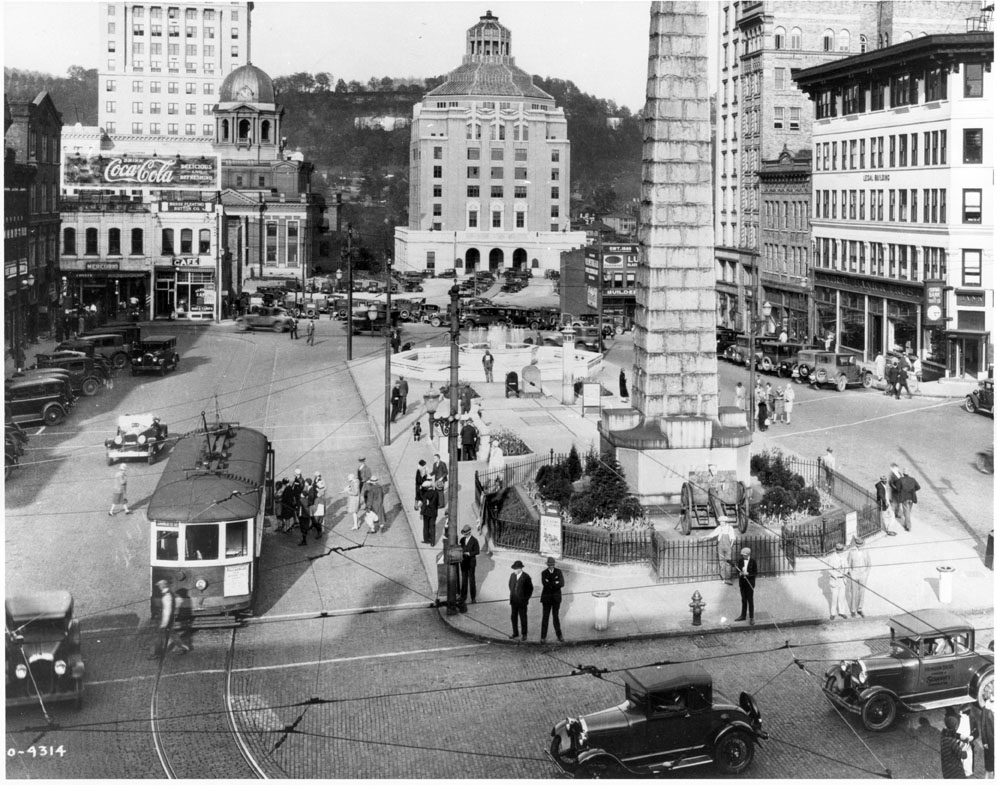On Jan. 11, 1932, the Asheville Associated Charities — an organization that served local individuals and families in need — held its annual meeting in the Grove Arcade. On that day, several reports were presented, including one by the organization’s executive secretary, E. Grace Miller.
The Asheville Citizen ran a transcript of Miller’s speech in the following day’s paper. In it, the executive secretary recapitulated the previous year’s economic troubles, painting a grim picture of the city’s ongoing financial woes amid the Great Depression.
“Last year when your executive secretary made her annual report she said that 1930 had been the most exacting year that the Asheville Associated Charities had ever known,” Miller began, referring to herself in the third person. “It is evident that when that remark was made, 1931 had not yet appeared upon the horizon. Every condition that made 1930 a difficult year was increased and intensified in 1931. As the curve of national and local prosperity has gone down, the load carried by this organization has consistently gone up.”
According to Miller, 1,147 families “were cared for” in January 1931. The numbers fell over the next several months, dropping as low as 386 in July. But the following month, demand rose and continued to climb, reaching 837 families by December.
“A number of these [cases] continued, of course, from month to month,” Miller explained, “but altogether there were 1,956 different families cared for during the year.”
Thorough and detailed, Miller enumerated the many ways the organization served these families. In total, 12,190 grocery orders were delivered; 1,429 fuel orders made; 1,304 prescriptions filled; 3,445 garments donated; 672 pairs of shoes provided; 97 rents paid.
“The various causes which have sent people to us in the past have continued to take their toll as in years gone by, but the factor which made this year one of unprecedented and unparalleled difficulty has been the problem of unemployment,” Miller declared. “People who have never had to ask for help before have been forced to our doors during the year. Of course, unemployment has always been one of our problems, but in 1931 it assumed gigantic proportions.”
Yet amid these hardships, opportunities did arise. Miller highlighted several positive developments, including the establishment of work programs such as the community wood yard and the community garden project, which combined to employ hundreds of workers. (See “Asheville Archives: City Confronts Unemployment, 1930-32,” Xpress, Oct. 11, 2020)
Additional programs included the establishment of the community cannery in August 1931. Spotlighting its success, Miller noted, “Interested friends were very generous in donating surplus crops, sugar and cans for this work.” She went on to share an anecdote about a late-night delivery of perishable produce to the site. Rather than allow the donations to spoil, the crew worked through the evening. “After a long, hot, hard day, these men and women of their own accord elected to work until morning so that even this fractional part of the minter’s food supply might be saved,” Miller stated.
Near the end of her address, Miller thanked the community for its support and offered this reminder to those attending the meeting:
“Never before have the people of Asheville realized to such an extent that the problem of the unfortunate people of this community are their problems too. As individuals and as organizations they have given of their money, and of their time and service in countless ways. … Each one who has contributed even in a very small way has made possible a measure of relief which could not have been achieved without it. Only lately we have had a very striking practical demonstration of the collective ‘power of the penny’ as an agency in relieving human suffering.”
Editor’s note: Peculiarities of spelling and punctuation are preserved from the original documents.




Another great Asheville history story. I really enjoy reading these! And the pictures are priceless. Thanks.
1931 is also the year that Asheville switched its form of government from the Asheville Board of Commissioners to the current Council-Manager form. The city elected 9 new councilmen. The primary featured 57 candidates including the first woman to run for office (locally) Mrs M.H. Harris. Mrs. Harris ran a boarding house where she lived, on College Street at the site of the present courthouse. She owned a bunch of land in Buncombe County and was involved with many women’s clubs including the Women Citizen’s League of Buncombe County.
Prior to the referendum that supported the new charter change, the WCLoB petitioned the NC legislature to have absentee voting removed from Buncombe County and its municipalities’ elections. They were successful in their effort and Asheville became the first city in North Carolina to have an election without absentee voting, pioneering its use for other NC cities to follow.
Asheville was also the first city in NC to abolish ward-system elections in in favor of at-large elections. The ward system was used as late as 1909 but gone by 1915 due to the efforts of the local Democratic Party of Buncombe.